In fact, most children who grow up in orphanages have serious psychological problems.
To cultivate an outstanding child, parents must have the consciousness and self-confidence: parents are the best teachers, affection is the best nutrition, the dining table is the best desk, and home is the best school.
I don't think a child should be boarding until college. In high school, the negative impact of boarding on children will be much smaller, but it is still recommended to live at home.

Children growing up under a boarding system are half orphanage children
With regard to child boarding, the pros believe that children's self-care ability and collective consciousness can be cultivated, while the opposition believes that the lack of family warmth is not conducive to children's emotional training and intellectual development.
I am definitely opposed to the boarding system, if I isolate my child from my parents, I can develop a strong self-care ability;
By sending children into the collective life early, you can have a good sense of collectiveness and be good at cooperating with others. According to this logic, children in orphanages should receive the best early education.
In fact, most children who grow up in orphanages have serious psychological problems, and self-consciousness and cooperation consciousness often stay at a lower level.
It is not that they are not talented, nor is the work of childcare workers inadequate, they are deprived of normal family life and parental love;
From a young age, she lacked a family atmosphere to nourish, and lacked emotional and verbal communication with her loved ones, so that she showed permanent defects in psychology and abilities in adulthood.
Neuroscience has confirmed that poor early emotional development can directly damage the normal development of the brain, make its structure abnormal, and cause irreversible pathological changes.
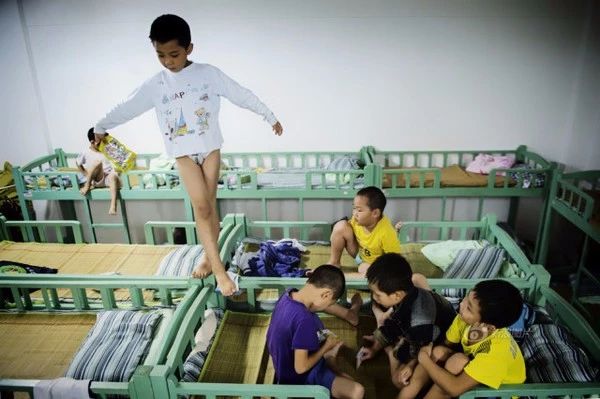
In this regard, Romania has made a fatal mistake.
After World War II, Romania's population plummeted. The government stipulated that every child of childbearing age must have at least 4 children and be sent to the government-funded National Correctional Institution for collective support.
Since then, more than 60,000 babies have been sent to the correctional homes for mass care.
Almost all of these children later behaved abnormally, most of them were mentally retarded, emotionally stunted, could not communicate with others, and could not form confrontation and dialogue;
Sitting alone in the corner, constantly shaking back and forth or repeating certain stereotyped behaviors, no fear of strangers, no ability to communicate-this situation, we can call it the "orphanage phenomenon".
American psychologists have done a famous experiment with macaques, which fully proves how important emotional moisturization is in a thinking life in the early years.
Psychologists isolated some young macaques from their mothers and installed two "fake moms" in the cages. One was made of hard steel wire, but there was a bottle on the chest, and the other was wrapped in a soft flannel, but no bottle.
According to the common sense of "milk is mother," the little monkey should be closer to the "wire mother" who has milk. But the little monkey was only hungry before approaching the wire mother, and after eating the milk, she returned to her flannel mother.
This detail allows us to see the instincts and fears of small life, their attachment and need for warmth even surpass food.
What is even more alarming is that most of these macaques are indifferent when they reach adulthood, do not mate or refuse to mate, and cannot integrate into the collective life. Walking staggered, even barking abnormally, always at the bottom of the monkey social class.
Even if some mother monkeys are pregnant by artificial means, they are indifferent to the baby monkeys, cruelly abuse and even kill their children.
Macaques and humans share 94% of their genes, and the "orphanage phenomenon" reflected in them indicates that:
Warm embraces, loving eyes, gentle words, and skin-blindness are indispensable for an intelligent life to grow normally.
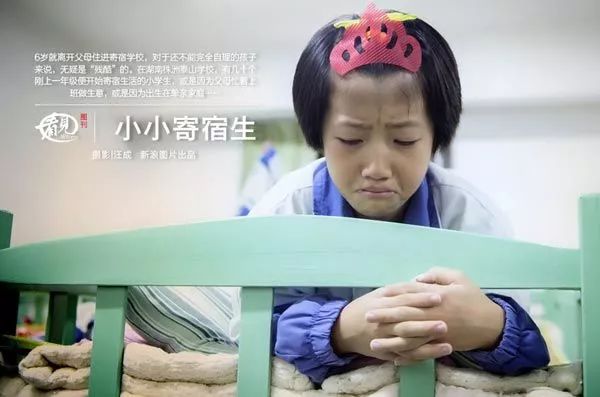
The growth of a child from a natural person to a social person must gradually follow the order of growth, just as a seed must grow in the process of rooting, germination, flowering, and fruiting.
Children must first acquire these natural needs such as food and clothing, security, love and affection, before they can develop a higher level of self-discipline, cooperation, altruism and other consciousness and capabilities.
Family warmth, especially maternal love, is an essential psychological nutrition for a child's growth.
Sending children to boarding is essentially anti-natural and anti-natural. Adults ignore children's natural needs as a person and impose their own needs on children.
In particular, sending a child to a kindergarten kindergarten is an eagerness to develop his social attributes in his childhood and reduce the time he spends with his parents.
Such seedlings encourage the child's original natural needs to be unsatisfied, and it will be difficult for him to grow up and express his social attributes in the future.
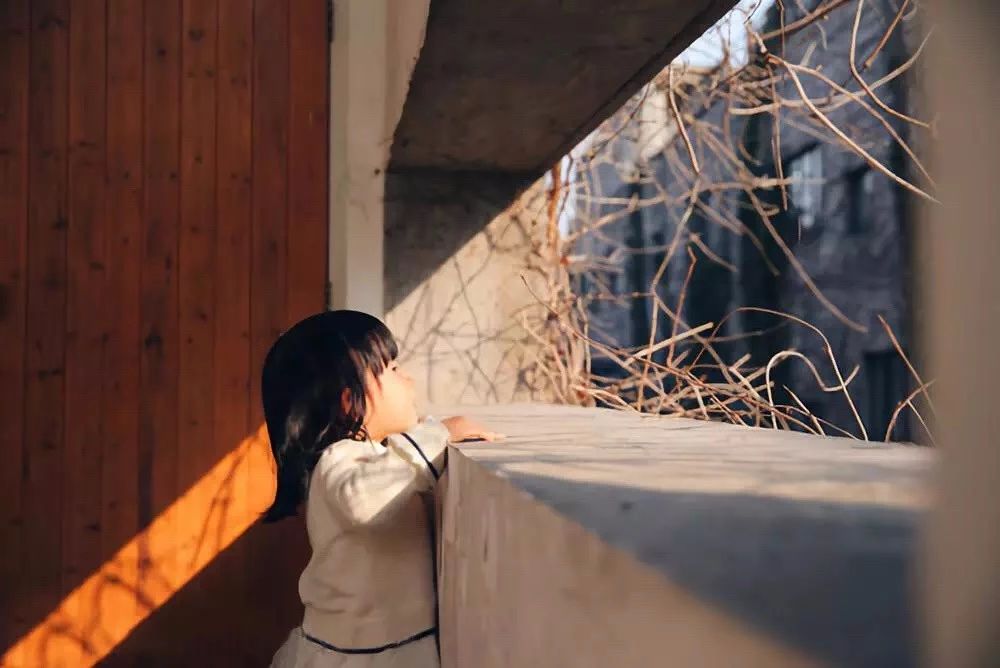
Fighting for a career is not a reason to give up on children
Some parents say that I know boarding is not good for children, but work is really busy and there is no way.
In fact, if we observe the children around us, it is easy to understand the fact that the relationship between children and parents must have the length and frequency of time spent together.
The younger the child, the more requirements for parental love, and the more time and frequency of getting along, this is necessary for children to obtain a sense of security.
Long-term boarding children are both subconsciously afraid of being abandoned by their parents and have resentment towards their parents, so they often show grievances, rejections, excessive lingering, and unreasonable.
At a friend's dinner, a successful, middle-aged friend brought a 5-year-old son. It is said that the child was sent to a well-known kindergarten in Beijing at the age of three, and he was very conscious of washing socks and underwear and going to bed.
The child looked very smart and very obedient, sitting silently eating next to his mother.
The other two five- or six-year-olds who ate together that day became familiar with each other, and after dinner, ran to the sofa on the side to play.
The little boy crawled into his mother's arms for a while, holding his mother's neck and lingering with his mother. After a while, he crawled into his father's arms and lingering with his father. He looked very melancholy and irritable. You can see that you have a strong sense of insecurity.

In fact, emotional alienation caused by boarding occurs not only in children's hearts, but also in parents' hearts.
Without the length and frequency of getting along, the emotional connection between them will be sparse, and the concentration and quality of love will not be high.
Many parents do not understand their children well, and it is difficult to communicate well with their children. This is related to the lack of opportunities for them to get along with their children and the sparse relationship they establish.
When a child is young, it is often when parents start to work hard, but this should not be a reason to not see the child every day.
Who was not busy when he was young? There is always a reason for wanting to do something, and there are always excuses for not wanting to do something. Go home whenever you are busy, even if you only spend half an hour with your child every day, or a few minutes are meaningful.
As long as the father and son often hear each other's voices, and the mother and son often smell each other's odors, a sweet aura will form in the home. This aura surrounds the child and makes him safe and moist.
Time is the most flexible thing.
Can work without or overtime;
Newly released blockbusters, don't watch;
Friends invite for dinner and go less;
The house is messy, let it be;
Lack of sleep is really tiring, let alone tiring, anyway, young ...
Parents in the world did not die because of bringing their children, let alone a few years.
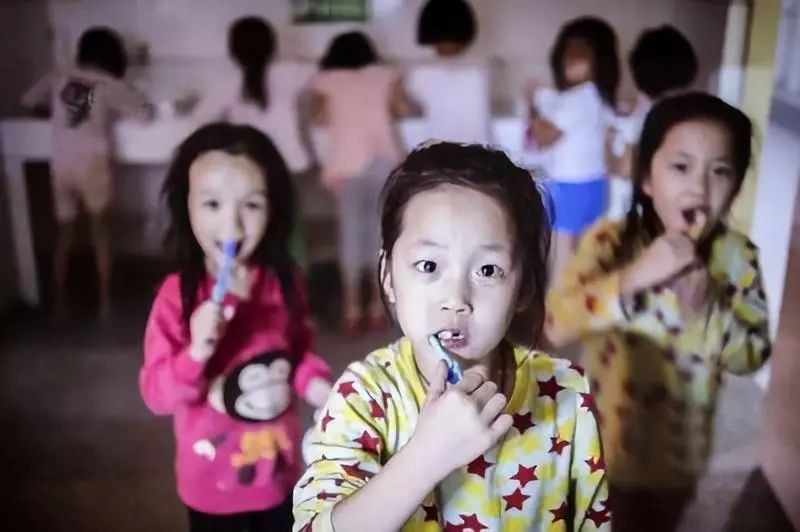
In fact, the only benefit of sending children to boarding is the liberation of parents.
Think about how our grandpa, dad, and even ourselves grew up, how to learn to get along with others, and we know that boarding is not the only way to cultivate children's ability to take care of themselves and cooperate. It is just an excuse at best.
Instead of allowing children to learn to get along with others and learn to be independent, boarding has weakened their potential in these areas.
When a child is extremely deficient in the relationship experience, he can only ask for love more out of tension, rather than learning to give love to others;
When he only knows obedience under the unified management of kindergartens or schools, he can only learn to suppress himself and lose his personality, but he cannot learn to cooperate and be considerate.
There is also a case where young parents are busy with work and their children are handed over to the elderly. They are worried that the elderly will overspoil the child and the two evils will take the slightest advantage. Therefore, they chose boarding as a last resort.
However, I think that when there is a problem in family life that needs to be resolved, it cannot be done at the expense of children's interests. Parents should slowly find ways to coordinate their relationship with the elderly and slowly use scientific education ideas to affect the elderly. The basic principle is not to Give the problem to the weak child.
My daughter was a boarding school when she attended junior high school. At that time, we as parents didn't know the problems of boarding.
Tossing a child as young as 10 years old to school and returning home only once a week, the adverse effects are obvious.
Although Yuanyuan is a child who can actively solve problems, those three years are the three years in which I feel the most inadequate in education and the poorest state.
I really regret it now.
Many things will happen during the child's growth. If you can see your parents every day, if you have any problems or thoughts, you can be aware of them in time, communicate with your parents, and at least get timely and emotionally repaired.
Don't expect your child to leave the problem for a week and bring it back at the weekend.
Three years of boarding life still leave some negative things to Yuanyuan, "detoxification" takes many years. Every time I talk about that 3 year life, I feel guilty.
Fortunately, her daughter didn't board again in high school. The condition is getting better every day, and the negative effects of boarding gradually fade.
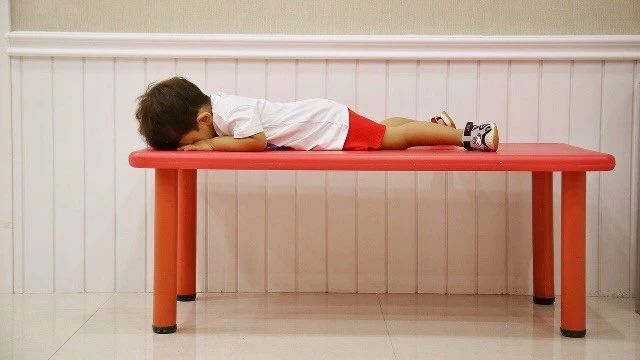
The whole society does not recognize the disadvantages of boarding
Someone has come up with the famous British Eaton School to prove the advantages of the boarding system.
The actual situation is:
First, Eaton College is a boys' school. It does not recruit children who are too young. Generally, students are 13-18 years old and are relatively mature.
Secondly, the school's running ideas are relatively advanced, and the teachers' quality is relatively high;
Third, the school has higher conditions for admission, the quality of the students themselves is better, and the school can also bring a great sense of honor and achievement to the students.
Eaton College is like the same crown, made up of the country's top pearls and gemstones, even in the United Kingdom.
So it can only be viewed as a special case, without representativeness.
I don't think a child should be boarding until college. In high school, the negative impact of boarding on children will be much smaller, but it is still recommended to live at home.
Whenever a parent asked me if I should send my child to boarding in order to choose a school, I always answered that even if I went to a school with poor conditions, I must let my child go home every day.
Boarding for a key school is a very uneconomical thing. On the surface, you can get something temporarily, but in the long run, you pick up sesame seeds and lose watermelons. "The best boarding school cannot replace mothers."
Unfortunately, this view is still unacceptable for most parents and sometimes not accepted by children.
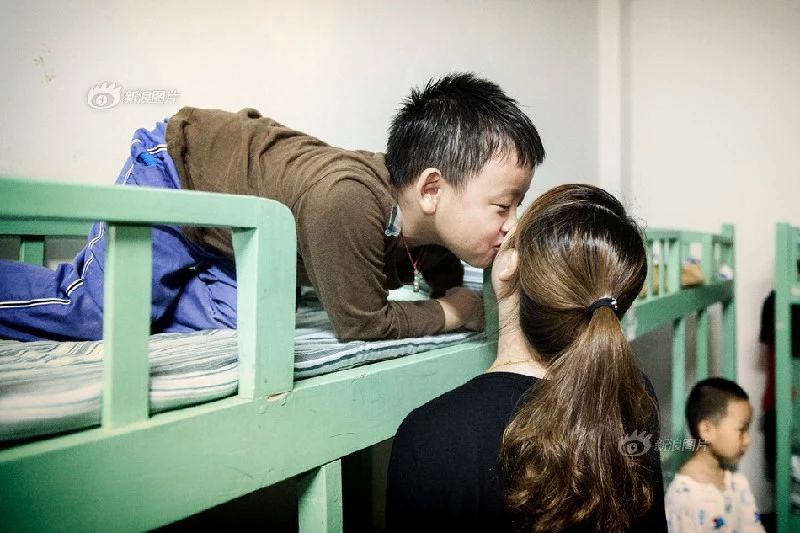
I have seen a child who separated from his mother for a few years at the elementary school level. He did not live in a city. When he was in junior high school, he chose to board again in order to attend a provincial key school.
Looking at the lingering time he spends with his mother, and the melancholy and nervousness in his eyes, I said to the child that it is better to choose a normal school next to his mother, and seeing his mother every day is more important than attending a key school.
The child is very dissatisfied. I said this, shaking my head firmly, no, it is important to go to a key school!
In the vast rural areas, the large-scale “withdrawal of schools and schools” has enabled millions of rural children to live in boarding life as early as possible, and many children have mental health problems.
In this case, I think that in addition to the failure of education policy, the more important reason is that the whole society has not realized the importance of getting along with children and mothers, and has not realized the disadvantages of boarding system.
Children are not ignorant, unemotional potatoes, they can be concentrated and stored in baskets and bags.
Protecting children with their parents should be a basic national policy. All social issues involving the interests of children should be resolved on the premise that children's physical and mental health is not affected.
Adam Smith, a British economist who opposes sending children to boarding schools, believes that children who are separated from their parents for a long time will cause the most fundamental damage to family morality and family happiness.
Nothing can make up for the harm that boarding lives bring to children.
He said that family education is set by the God of Nature, and complete family education is the way to cultivate wisdom.
The child really belongs to the parents for only ten years. If you don't cherish the time with the child, you will miss many wonderful moments in life.
To develop a great child, parents must have the awareness and self-confidence:
Parents are the best teachers, family is the best nutrition, the dining table is the best desk, and the home is the best school.

 CN
CN SE
SE
